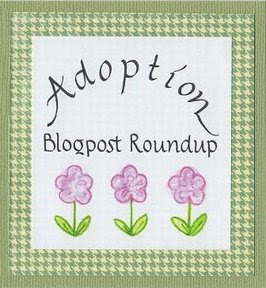Yesterday I learned that the youngest son of Tom Sullivan, my partner at Canticle, was diagnosed with bone marrow cancer. Gabriel is just 3-1/2 years old. My first thought (after, “Lord, please heal that little boy quickly and as painlessly as possible”) was, “Oh, that poor family.”
Please pray for Jeffrey, Tommy, Maria, Michael, and Joshua, along with their parents Tom and Carol, when you remember Gabriel.
When I heard the news, I was transported back to childhood, when I had a ringside seat to my younger sister’s struggle with bone cancer. Today she is a vivacious mother of two nearly grown children who moves faster on one leg than most other people do on two. But it was a scary time; as my parents struggled to tend to my sister’s needs, the effects of that struggle hit all of us with relentless force.
As I recall, the people who helped me the most were not effusive in their sympathy. After a while, it was hard not to resent adults who would greet me with a pained look and a saccharine, “How’s your sister?” (see photo).
My hero at that time was a walleyed old waitress at the corner café. I’d sneak in to the diner after school, and for thirty-five cents (the cost of a Coke), I could sit and chew on Marguerite’s ear for the better part of an hour. (The diner was usually empty at that time.) I always came away from that place feeling as though I was not entirely alone in the cold, hard universe. She wasn’t particularly “soft” or even sympathetic – mostly she told me stories about her childhood. But she was the one person who never asked about my sister.
Foster parents and adoptive parents can sometimes find themselves having to help a child who has been traumatized by circumstances beyond his or her control. They may have big, ugly feelings about themselves: Misplaced guilt for something they said or did that (they think) made their birth family disappear, misdirected anger at you for their loss, or an increasing sense of shame over being “different” from their peers – and from you. At times like this, a certain amount of understanding is crucial; however, try not to dwell on it. That child will be far better off if you maintain a certain level of detachment, and show him or her how to resolve those feelings in a healthy way, and to rise above his past by focusing on the future. A truly “empathetic heart” is not soft and squishy, but brave.
Please pray for Jeffrey, Tommy, Maria, Michael, and Joshua, along with their parents Tom and Carol, when you remember Gabriel.
When I heard the news, I was transported back to childhood, when I had a ringside seat to my younger sister’s struggle with bone cancer. Today she is a vivacious mother of two nearly grown children who moves faster on one leg than most other people do on two. But it was a scary time; as my parents struggled to tend to my sister’s needs, the effects of that struggle hit all of us with relentless force.

As I recall, the people who helped me the most were not effusive in their sympathy. After a while, it was hard not to resent adults who would greet me with a pained look and a saccharine, “How’s your sister?” (see photo).
My hero at that time was a walleyed old waitress at the corner café. I’d sneak in to the diner after school, and for thirty-five cents (the cost of a Coke), I could sit and chew on Marguerite’s ear for the better part of an hour. (The diner was usually empty at that time.) I always came away from that place feeling as though I was not entirely alone in the cold, hard universe. She wasn’t particularly “soft” or even sympathetic – mostly she told me stories about her childhood. But she was the one person who never asked about my sister.
Foster parents and adoptive parents can sometimes find themselves having to help a child who has been traumatized by circumstances beyond his or her control. They may have big, ugly feelings about themselves: Misplaced guilt for something they said or did that (they think) made their birth family disappear, misdirected anger at you for their loss, or an increasing sense of shame over being “different” from their peers – and from you. At times like this, a certain amount of understanding is crucial; however, try not to dwell on it. That child will be far better off if you maintain a certain level of detachment, and show him or her how to resolve those feelings in a healthy way, and to rise above his past by focusing on the future. A truly “empathetic heart” is not soft and squishy, but brave.








No comments:
Post a Comment